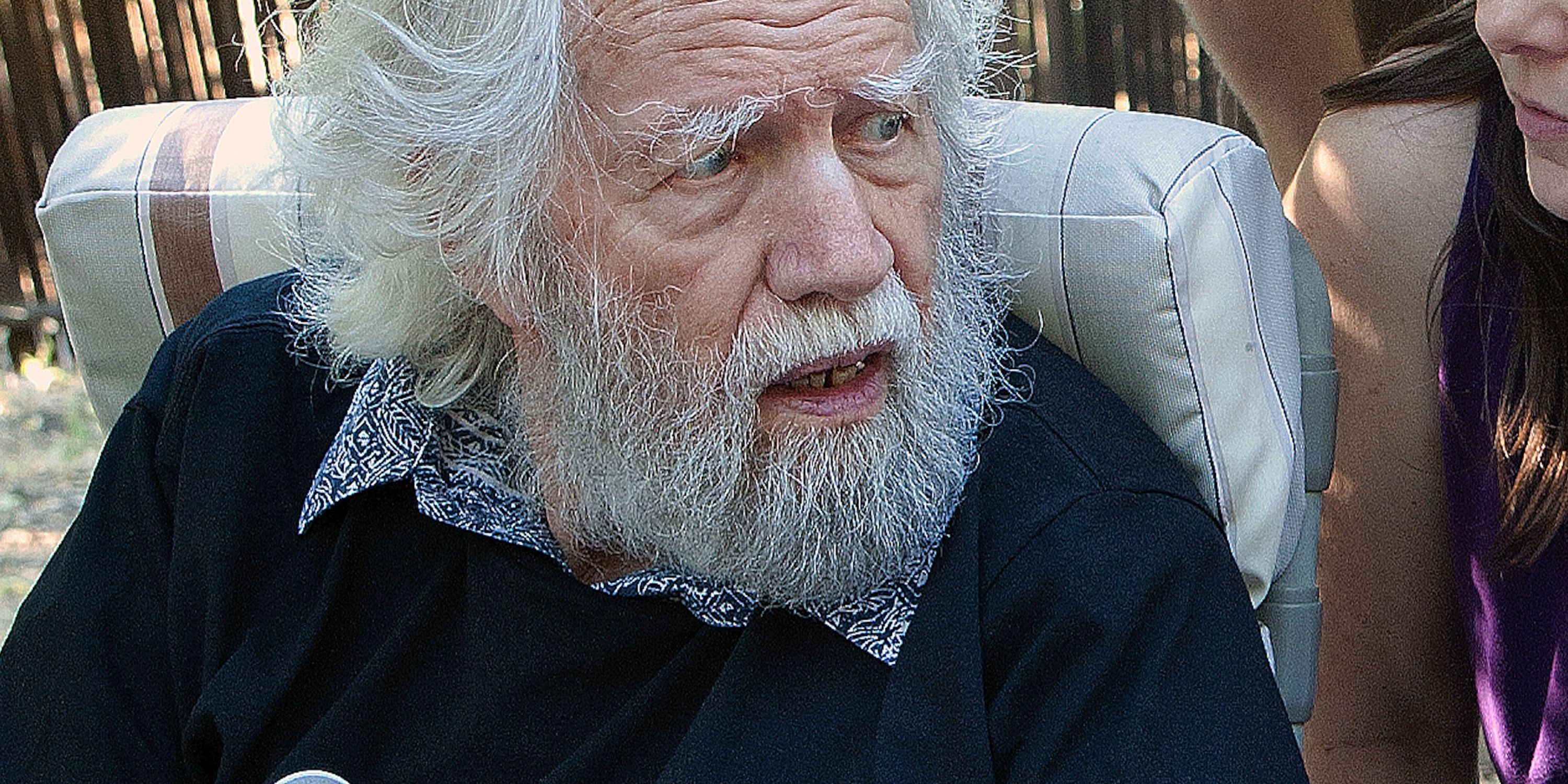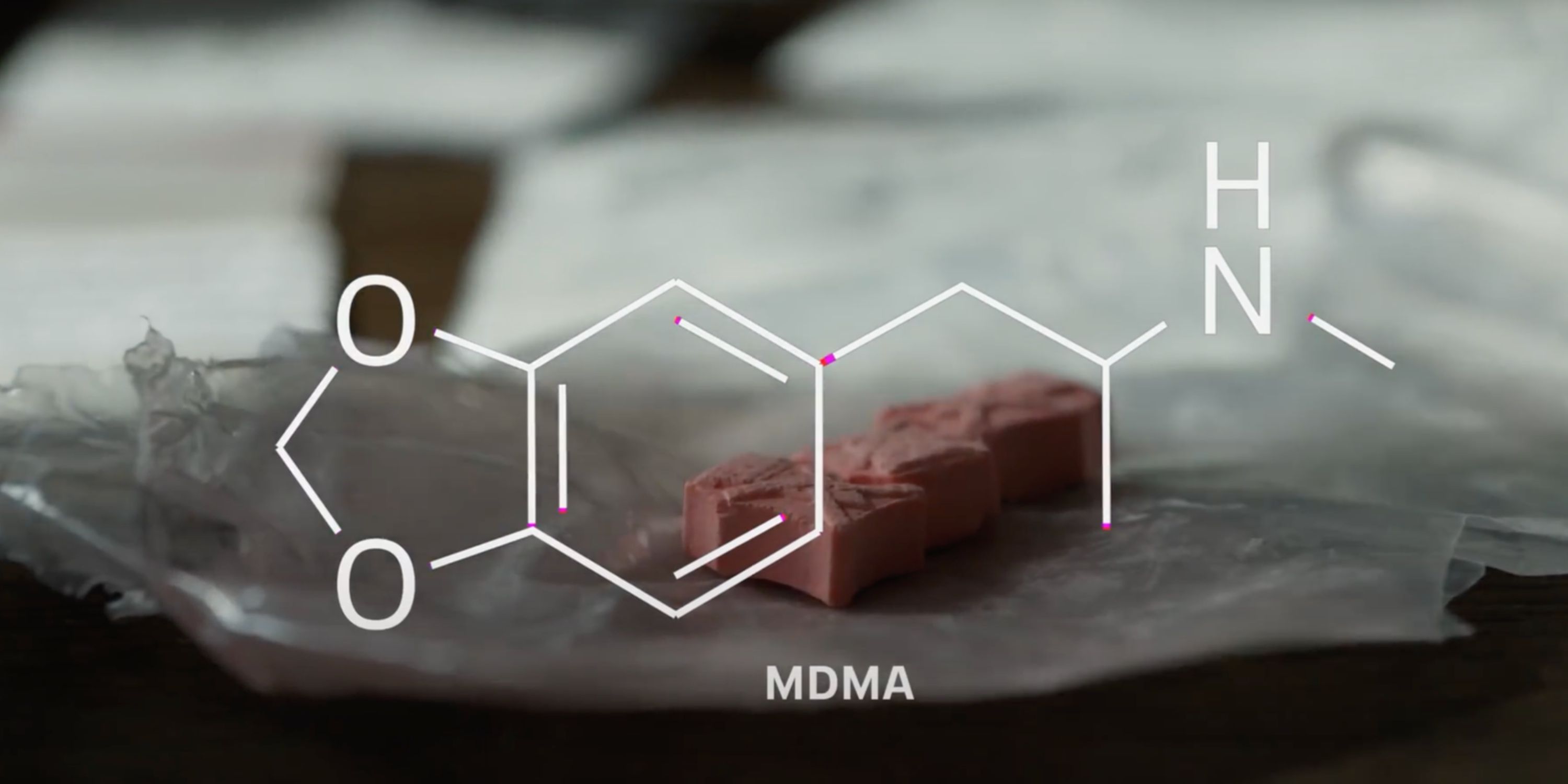Now streaming on Netflix, The Business of Drugs explores the mental health benefits of MDMA, and documents the work of MDMA pioneer Alexander "Sasha" Shulgin. In 1994, the Drug Enforcement Agency raided the American chemist's California lab, a moment that forever changed the public discourse about the mind-altering synthesized drugs commonly known as "Ecstasy" or "Molly." So, why was Shulgin targeted by authorities, and what happened to him in the 20 years between the '90s raid and his 2014 death?
The Business of Drugs is fundamentally about exposing drug culture, but doesn't include a damning portrait of Shulgin. In fact, the second episode of the six-part Netflix docuseries suggests that the U.S. government dismissed Shulgin's game-changing research in order to promote a self-serving agenda connected to the "war on drugs." In The Business of Drugs, host Amaryllis Fox acknowledges Shulgin as the "spiritual father of psychedelics," and attempts to explain why he and partner Ann Shulgin believed that MDMA could be beneficial to people all over the world. As the Netflix docuseries reveals, though, American culture wasn't ready to accept that "Ecstasy" had any redeeming value. Incidentally, the 1985 ban of MDMA in the United States not only sparked interest of the substance within domestic underground subcultures, but also caught the attention of curious individuals worldwide.
In The Business of Drugs on Netflix, Fox establishes the appropriate context by initially discussing Alexander Shulgin's extensive MDMA research about "therapeutic potential," which is complemented by Ann Shulgin's statement that MDMA "is so extraordinary valuable for PTSD.” Specifically, she reveals that MDMA allows for self-introspection "without self-hate." Midway through the Netflix docuseries, Fox questions Ann Shulgin about her groundbreaking psychedelic-themed books PiHKAL and TiHKAL, co-written by Alexander for the sole purpose of ensuring that their research wouldn't be lost. "It took two years for Washington to catch on," Ann Shulgin says. Two years after the first book released, DEA agents invaded the Shulgins' home. Alexander was fined $25,000, and his lab was shut down.
In The Business of Drugs on Netflix, Fox states that "The Shulgins' books demonstrated a new path to sharing chemical knowledge and understanding." Even so, their work was once described by a DEA Agent as "cookbooks on how to make illegal drugs." While that may be true, the ban of MDMA in America (and elsewhere) inspired people to actively seek out the drug, and not necessarily for quiet introspection that could benefit their mental health. As the Netflix docuseries shows, "psychonauts" have long tested out tweaked MDMA formulas, and "Molly" is now mostly correlated with millennial club kids in pop culture. As for Alexander Shulgin, he was already 68 years old when the DEA shut down his lab. He continued research over the years with Ann, and ultimately published four books after the 1991 release of PiHKAL. Shulgin passed away at age 88 in 2014.
The Business of Drugs' synthetics-themed episode ends with a poignant sequence that links to Alexander Shulgin's MDMA legacy. Jonathan M. Lubecky, a U.S. Army Sergeant in the Iraq War, recalls a suicidal moment that led him to The Multidisciplinary Association for Psychedelic Studies (MAPS) in Santa Cruz, California. Lubecky then received FDA-approved MDMA-assisted therapy, and reached a "perfect, therapeutic place" after seeing "weird, cool geometric shapes." His anecdote confirms Shulgin's original belief — that the synthesized drug could help cure PTSD. The Business of Drugs on Netflix ends with Fox admitting that she feels nostalgic for "the belief that Ann and Alexander Shulgin had in the potential of these drugs" before MDMA became associated with indulgent party culture.


